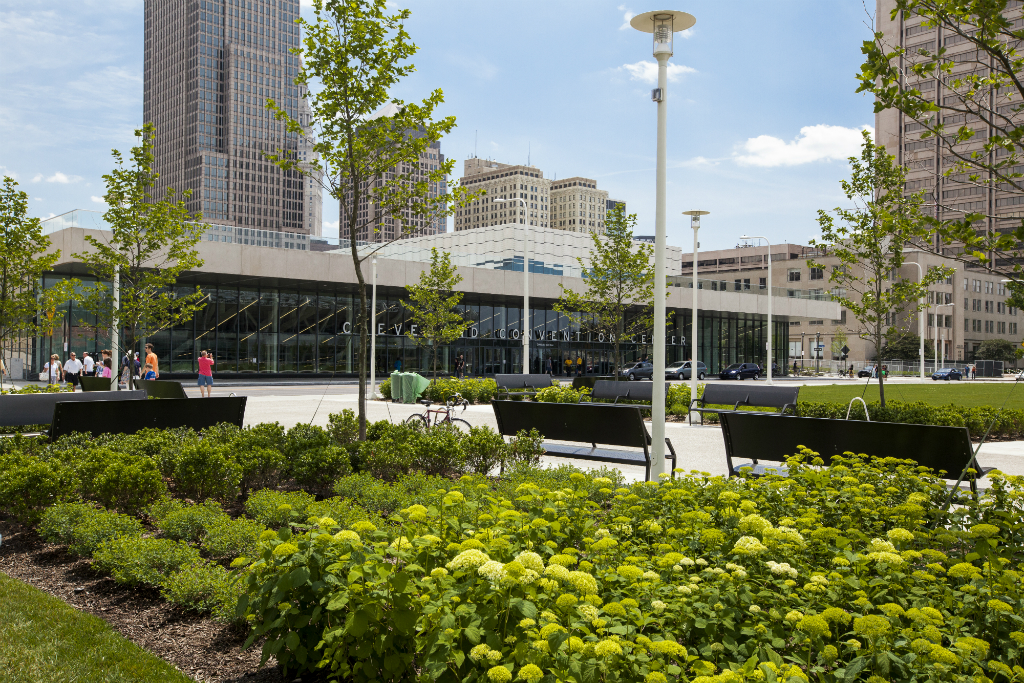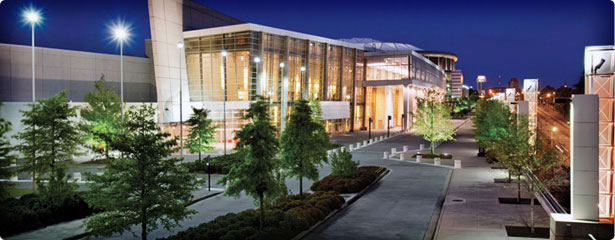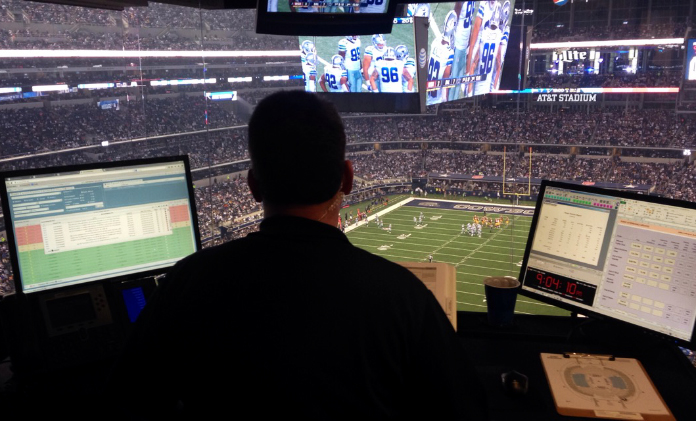Augmenting the Fan Experience Through Stats
Imagine knowing the exact speed a NFL player runs a route or the health status of an athlete on the field. That’s possible, or will be soon, thanks to radio-frequency identification (RFID) tags.
According to a story on The Verge, the NFL partnered with Zebra Technologies—a company that manufactures RFID-based motion tracking systems—this summer to help track various stats.
“The league’s focus is actually less on providing analytics for its member teams and more on augmenting the fan experience,” Vlad Savov wrote. “In fact, in order to ensure fairness, the NFL isn’t releasing the data it’s gathering to the teams until all 31 stadiums have installed the sensor system necessary to track the RFID tags.”
Seventeen stadiums (NFL teams in Atlanta, Baltimore, Carolina, Chicago, Cincinnati, Denver, Detroit, Green Bay, Houston, Jacksonville, Miami, New England, New Orleans, Oakland, San Francisco, St. Louis, and Washington) currently have the technology installed.
“The company describes 2014 as a ‘best effort’ year, with half the NFL stadiums being outfitted with its sensor networks and only occasional uses of the technology manifesting themselves in game broadcasts till now,” Savov wrote. “But the vision for this technology is much grander than its present state.”
Check out the rest of the story on The Verge to learn more about the bigger vision for this technology.
(photo credit: runneralan2004 via photopin cc)
Two Member Venues Receive LEED Certifications
Congratulations to two of our member venues on achieving LEED certifications!
First up, the Cleveland Convention Center has been awarded LEED for Building Design and Construction (LEED-BD+C) Gold Certification from the U.S. Green Building Council’s (USGBC). The center earned the certification for green design and construction in the areas of energy use, lighting, water, and material use as well as incorporating a variety of other sustainable strategies. For example, the venue includes a 12.5-acre green roof with extensive additional plant life and soil material that filters and reuses storm water. Also, Levy Restaurants—the exclusive food and beverage provider for the convention center—has partnered with SMG to start two honeybee colonies to produce honey for dishes in the facility.
“We have learned that the national honey bee population is in jeopardy and, last winter, nearly one-third of all honey bee colonies were reported to have died,” said IAVM member Mark J. Leahy, general manager of the Global Center for Health Innovation and the Cleveland Convention Center. “Honeybee colonies provide a vital component in the food chain and this represents our initiative to create a sustainable honey bee population onsite that can produce honey for our Levy Restaurants kitchen in the facility and pollenate plants and crops in the area.”
Next up, the Georgia World Congress Center (GWCC) is now the world’s largest LEED certified convention center. It was awarded Silver certification by the USGBC.
“We could not be happier to receive this certification,” said IAVM member Frank Poe, executive director of the Georgia World Congress Center Authority (GWCCA), the state authority that governs the GWCC, Georgia Dome, Centennial Olympic Park, and manages the Savannah International Trade and Convention Center. “Our staff has worked diligently to green our event practices, reduce our environmental impact, and preserve our facilities for future generations. This recognition solidifies our leadership role in our industry and demonstrates our commitment to the community.”
GWCCA staff created a sustainability committee in 2005 and hired Tim Trefzer as the center’s first sustainability coordinator in 2010.
“Tim Trefzer and the GWCCA Sustainability Committee did an outstanding job securing this award,” said IAVM member Mark Zimmerman, general manager of the GWCC. “We are very proud to be LEED Silver certified; this is a monumental achievement for the GWCC and the convention industry as a whole.”
(Images: Cleveland Convention Center and the Georgia World Congress Center)
Walk This Way…to a Happier Mood
Here’s a quick and easy way to get happier—change your walking style.
Researchers at Queen’s University in Canada recently discovered that making people walk in a happy or sad way affects their moods.
“It is not surprising that our mood, the way we feel, affects how we walk, but we want to see whether the way we move also affects how we feel,” said Nikolaus Troje, a senior fellow at the Canadian Institute for Advance Research and co-author of the study.
Troje and his co-researchers showed study participants a list of positive and negative words and then asked them to walk on a treadmill as they measured their gait and posture. A screen showed the participants a gauge that moved left or right depending on if their walking styles were more depressed or happier. They weren’t told what it was measuring, and the researchers would coach them into moving the gauge left or right.
The participants afterwards wrote down as many words as they could remember from the earlier list, and those that walked in a depressed manner remembered more negative words than positive ones. The researchers suggest that the style of walking created the mood.
So, the next time you’re feeling a little down, just change your walk to something a little happier. Perhaps with more arm movements, your head held high, and a pep in your step. Maybe some like this.
My First Stadium Operations Experience
Yesterday, I was given an inside look at AT&T Stadium’s event operations during the Monday night football game. Paul Turner, CFE, CSSP, director of event operations and security, invited IAVM staff and guests to the stadium for a “secret shop” activity in which we were given access to various levels of the stadium for observation and evaluation. Not only was this my first time attending a game at AT&T Stadium, but it was my first NFL game experience.
Venue Best Practices: Ebola & Bloodborne Pathogens Webinar
This free webinar for venue professionals and companies will include lessons learned from Dallas/Ft. Worth venues, recent updates from front-line agencies, and best practices regarding current regulations and codes for handling bloodborne pathogens in a venue. Learn from the collaborative efforts of IAVM’s Ebola Task Force, formed to assist in providing relevant resources and updates regarding the current pandemic. Additional resources and information are available at iavm.org/avss/ebola.
The webinar will be moderated by Russ Simons, chief listening officer and managing partner at Venue Solutions Group, and a member of the IAVM Ebola Task Force. It will take place Friday, Oct. 31, from noon-1 p.m. (EDT). Registration spots are limited. Please sign up now to ensure participation.
(photo credit: NIAID via photopin cc)
Do you want to receive a Front Row News weekly digest?
Categories
- Allied (861)
- Architecture (147)
- Arenas (747)
- Career (897)
- Convention Centers (895)
- Education (623)
- Events (1,544)
- Food & Beverage (193)
- Foundation (113)
- Guest Experience (1,496)
- Industry News (2,270)
- Leadership (1,888)
- Marketing (150)
- Membership (2,000)
- Music (213)
- Performing Arts Centers (454)
- Professional Development (409)
- Research (127)
- Safety & Security (442)
- Sports (763)
- Stadiums (608)
- Student (159)
- Technology (516)
- Ticketing (92)
- Touring (82)
- Trends (364)
- Uncategorized (753)
- Universities (218)
- Video (25)
- Young Professional (198)
Twitter Feed
- Twitter feed loading
Recent Posts
- College Park Center and Texas Hall Welcome Kristina Hill to Executive Director Role
- Cincinnati Convention Center Appoints Brian Clark as Assistant General Manager
- Capital One Arena Hosts Record-Setting PWHL Game, Highest-Attended In-Arena Game in U.S. Women’s Hockey History
- VenuWorks Appoints Local Arts Advocate Matt Hammond as Executive Director of Paramount Arts Center
- Dale Adams, CVE, Named Executive Director of Arizona State Fair
Categories
- Allied
- Architecture
- Arenas
- Career
- Convention Centers
- Education
- Events
- Food & Beverage
- Foundation
- Guest Experience
- Industry News
- Leadership
- Marketing
- Membership
- Music
- Performing Arts Centers
- Professional Development
- Research
- Safety & Security
- Sports
- Stadiums
- Student
- Technology
- Ticketing
- Touring
- Trends
- Uncategorized
- Universities
- Video
- Young Professional
Archives
- January 2026
- December 2025
- November 2025
- October 2025
- September 2025
- August 2025
- July 2025
- June 2025
- May 2025
- April 2025
- March 2025
- February 2025
- January 2025
- December 2024
- November 2024
- October 2024
- September 2024
- August 2024
- July 2024
- June 2024
- May 2024
- April 2024
- March 2024
- February 2024
- January 2024
- December 2023
- November 2023
- October 2023
- September 2023
- August 2023
- July 2023
- June 2023
- May 2023
- April 2023
- March 2023
- February 2023
- January 2023
- December 2022
- November 2022
- October 2022
- September 2022
- August 2022
- July 2022
- June 2022
- May 2022
- April 2022
- March 2022
- February 2022
- January 2022
- December 2021
- November 2021
- October 2021
- September 2021
- August 2021
- July 2021
- June 2021
- May 2021
- April 2021
- March 2021
- February 2021
- January 2021
- December 2020
- November 2020
- October 2020
- September 2020
- August 2020
- July 2020
- June 2020
- May 2020
- April 2020
- March 2020
- February 2020
- January 2020
- December 2019
- November 2019
- October 2019
- September 2019
- August 2019
- July 2019
- June 2019
- May 2019
- April 2019
- March 2019
- February 2019
- January 2019
- December 2018
- November 2018
- October 2018
- September 2018
- August 2018
- July 2018
- June 2018
- May 2018
- April 2018
- March 2018
- February 2018
- January 2018
- December 2017
- November 2017
- October 2017
- September 2017
- August 2017
- July 2017
- June 2017
- May 2017
- April 2017
- March 2017
- February 2017
- January 2017
- December 2016
- November 2016
- October 2016
- September 2016
- August 2016
- July 2016
- June 2016
- May 2016
- April 2016
- March 2016
- February 2016
- January 2016
- December 2015
- November 2015
- October 2015
- September 2015
- August 2015
- July 2015
- June 2015
- May 2015
- April 2015
- March 2015
- February 2015
- January 2015
- December 2014
- November 2014
- October 2014
- September 2014
- August 2014
- July 2014
- June 2014
- May 2014
- April 2014
- March 2014
- February 2014
- January 2014
- December 2013
- November 2013
- October 2013
- September 2013
- August 2013
- July 2013
- June 2013
- May 2013
- April 2013
- March 2013
- February 2013
- January 2013
- May 2012
- March 2012
- December 2011
- November 2011
- October 2011
Recent Comments
- Frank Bradshaw, Ph.D., CVE on John Meyer, CVE, a Tireless Advocate of Certification for Venue Professionals, Has Died
- Neil Sulkes on Hilary Hartung, Friend to Many in Venue Marketing, Has Left Us
- Jason Parker, CVE on The Devastation of Hurricane Helene and How We Can Support One Another
- Larry Perkins on Touhey Testifies Against Speculative Ticketing Before Congressional Subcommittee
- Peter Secord on Major Players for Planned Elkhart Amphitheater Were in the Mix at VenueConnect






